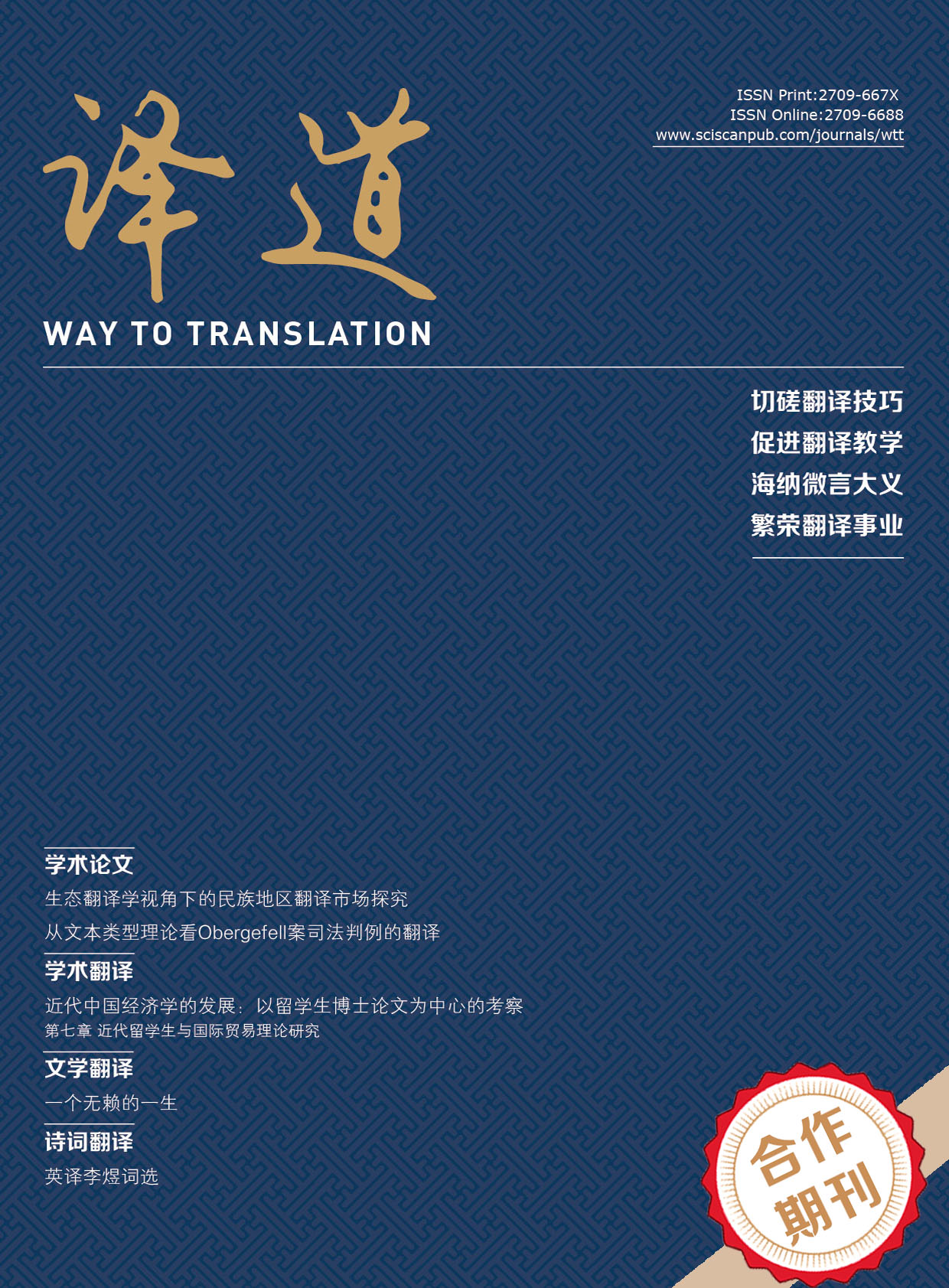Way to Translation
ISSN Print: 2709-667X
ISSN Online: 2709-6688
Contact Editorial Office
Subscribe to the latest published information from SCISCAN
译者文化身份对中国当代通俗文学译介的影响 ——以《三体Ⅱ》《三体Ⅲ》英译为例
Effects of Translators’ Cultural Identity on Translation of Chinese Modern Popular Literature: A Case Study of English Version of The Dark Forest and Death’s End
- Authors: 王丹妮 汪世蓉
-
Information:
中南财经政法大学外国语学院,武汉
-
Keywords:
English version of The Dark Forest and Death’s End; Translator’s identity; Cultural diaspora; Global communication of Chinese culture《三体》英译; 译者身份; 文化离散; 中国文化传播
- Abstract: From the perspective of cultural diaspora, this article interprets the English translation of Chinese culture in The Dark Forest and Death’s End, and compares the translation style of American translator Joel Martinsen and diasporic translator Ken Liu to discuss the effects of translators’ cultural identity on his or her translation. Martinsen takes Chinese culture as the starting point and the target readers as the core, fully considering the thinking patterns and expression habits of English readers, but he occasionally misunderstands some phrases. Liu tends to transplant Chinese culture into English culture and guide readers to understand the author, showing the unique charm of Chinese. Heightening the sense of identity of the diasporic translators can better enhance the effectiveness of Chinese literature’s global communication and the international effects of Chinese culture. 本文拟从文化离散的视角解读《三体Ⅱ·黑暗森林》和《三体Ⅲ·死神永生》中国特色文化部分的英译,对比分析美国译者乔尔·马丁森和华人离散译者刘宇昆的翻译风格,探讨译者文化身份对译介的影响。研究发现,马丁森偏向以中国文化为出发点、以目标受众为核心的翻译理念,充分考虑英语读者的思维模式和表达习惯,但偶有词不达意的遗憾;刘宇昆倾向于在英语文化中移植进中国文化,引导读者去接近作者,凸显了中国语言的独特魅力。增强华人离散译者群体的身份认同感,是提升中国文学海外接受有效性和中华文化国际影响力的更佳路径。
- DOI: https://doi.org/10.35534/wtt.0102004
- Cite: -
















